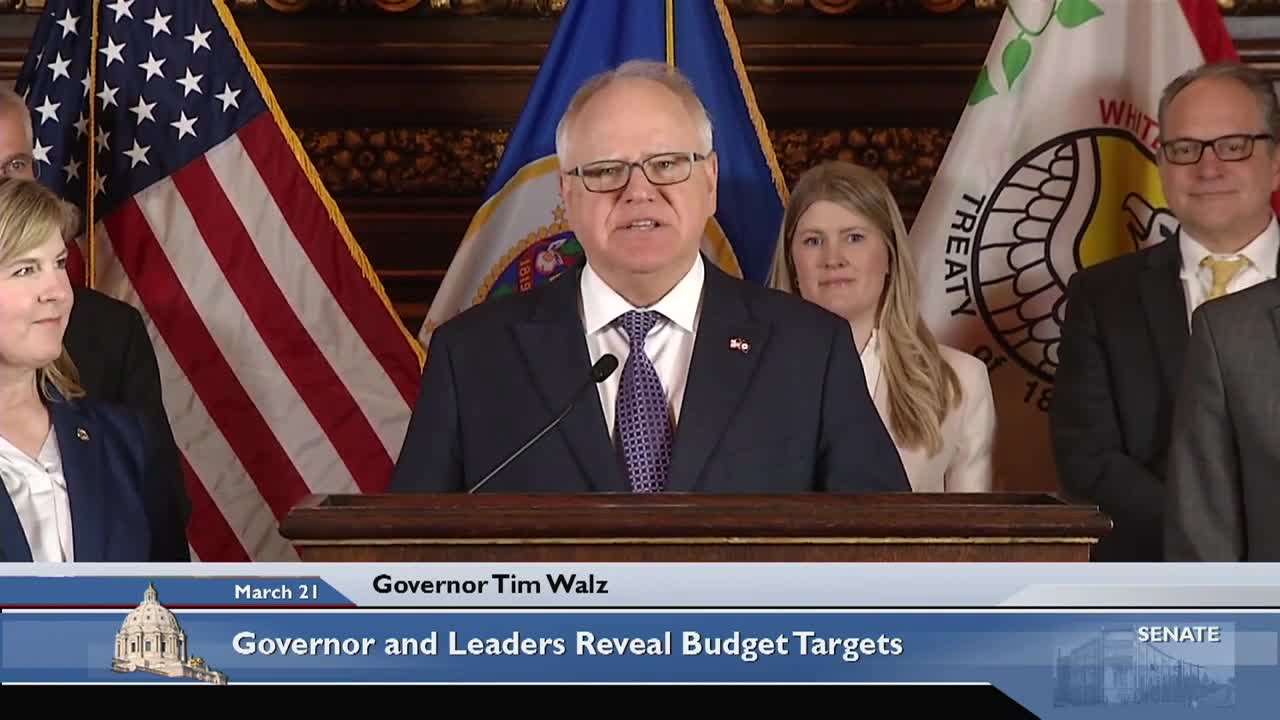Democrats tout ‘historic investment’ in budget surplus spending plan; Republicans criticize ‘spending spree’
[anvplayer video=”5169018″ station=”998122″]
Gov. Tim Walz and state legislative leaders announced an agreement Tuesday on a plan for how to spend the state’s nearly $18 billion budget surplus over the next two years. So far, it’s a framework for a final budget, and lays out priority investments like infrastructure, housing, education and tax cuts.
The Democratic majority boasted of historic investments in things like education, saying schools have been shortchanged for decades. Meanwhile, Republican lawmakers criticized the plan to spend the entire surplus in two years.
As Gov. Walz has been touting since early this year, the categories with the biggest dollar signs next to them include $2.2 billion for education and $3 million toward tax relief.
“This is the largest increase in early education, K-12 and higher education that I can recall in my time serving in the legislature over the past nearly 20 years,” House Speaker Melissa Hortman (DFL — Brooklyn Park) said Tuesday.
Walz also called the proposed tax cuts the largest in state history. That said, the latest $3 billion tax relief plan is noticeably less than the governor’s previous proposals ranging from $5-8 million, including direct checks to Minnesotans and a reduction in taxes on social security benefits.

“There’s definitely room in this target to do something on both of those,” Hortman said, leaving it unclear which previously discussed tax cuts will fall to compromise in order to more heavily bolster other areas, like public safety.
“We will leave it to the tax chairs and to the Commissioner of Revenue, representing the governor, to negotiate exactly what fits into that bill,” she continued.
In a statement, House Minority Leader Lisa Demuth accused the Democratic majority of “going on a spending spree.”
“The democrats have kind of changed their tune,” Rep. Pat Garofalo (R — Farmington) added in an interview Wednesday.
Like Demuth, Garofalo believes more of the money should be returned to Minnesotans.
“The easiest thing to do would be for Governor Walz to support a rebate program like he campaigned on,” he said.
Garofalo was also a proponent of holding onto at least some of the surplus beyond two years.
“This is a math issue,” he said. “Putting us on the hook for anything permanent, whether it’s permanent spending or permanent tax cuts, it sets us up for a potential fall.”